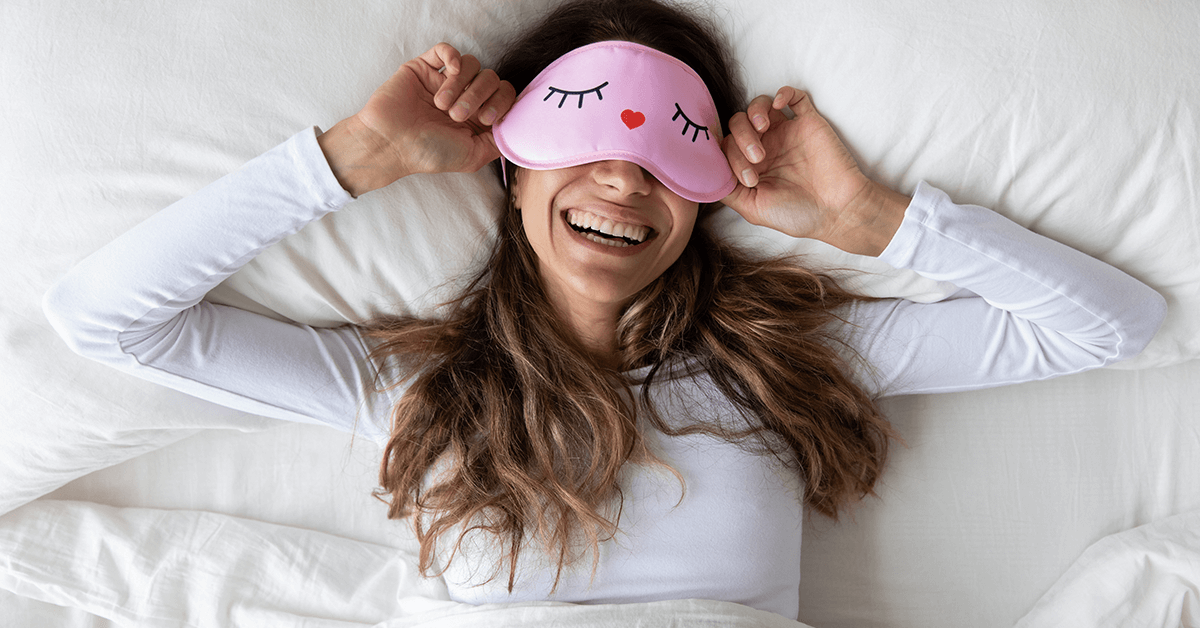Why Sleep Hygiene is Important | Tips for Sleep | Is Sleep Hygiene for Everyone?
Overview
Sleep hygiene refers to behaviors and environmental conditions that can be adjusted for quality sleep. In some cases, sleep hygiene is a stand-alone treatment option for patients with sleep disorders, like insomnia. Healthy sleep hygiene means having a good and stable sleep schedule in a healthy bedroom environment.[1]
Why Sleep Hygiene is Important
Healthy sleep is essential for physical and mental wellness. It improves productivity and your overall quality of life. Restorative sleep is necessary for both adults and kids, and despite the notion that sleep requirements decrease as you age, older people still need quality sleep to maintain good health.
Conversely, poor sleep hygiene can lead to problems falling asleep, experiencing frequent sleep disturbance, and daytime sluggishness. A general lack of consistency in sleep quality and quantity can also be an indication of poor sleep hygiene.[2]
Tips for Healthy Sleep Hygiene
1) Create a Sleep Schedule
Having a consistent sleep schedule can help you normalize sleep patterns.
2) Set A Fixed Wake-Up Time
Try not to have a fluctuating sleep schedule. Even if it’s a weekend, you’ll need to practice waking up and going to bed at the same time to get into the rhythm of a consistent sleep schedule.
3) Prioritize Sleep
You may be guilty of skipping sleep to work, study, or socialize. Sleep is vital to your overall health, which is why it is important to prioritize sleep. Calculate a target bedtime and make sure you try to get to sleep on time. You have the whole next day to finish projects.
4) Make Slow But Steady Adjustments
Don’t try to shift your sleep schedule all at once because it can throw everything out of whack. Create milestones. Start by making small steps until you can fully adapt to your new sleep routine.
More about Nightly Routines
- Do Your Best to be Consistent: Establish sleep habits every night that you can follow through with, including putting on comfortable nightwear, having a hot bath, and listening to calming music.
- Dim Your Lights/ Avoid Using Electronics: Exposing yourself to bright lights, including those from electronic devices, can hamper the production of a sleep hormone called melatonin.
- Practice Relaxation: Instead of thinking about problems, you should focus on things that can help you relax 30 minutes before bedtime, or try a guided meditation.
More about Daytime Routines
- Have a Positive Daytime Routine. A positive mindset and healthy routine during the day can minimize sleep disruption and support your circadian rhythm.[3]
- Exercise. Regular exercise can help you sleep better at night and prevent insomnia.
- Do Not Smoke or Drink. Having vices can affect your body in different ways. Nicotine is a stimulant that makes you feel awake amidst exhaustion while drinking disrupts the body’s circadian rhythm. Alcohol can also cause fatigue and irritability the day after consumption.
- Refrain From Caffeine Consumption in the Afternoon. Caffeine-loading in the afternoon makes it difficult for you to sleep at night. So try to avoid coffee or sodas a couple of hours before bedtime.
- Eat a Lighter Dinner. Eating a heavy or greasy dinner may lead to indigestion, which makes it hard for your body to relax enough to have a restful sleep.
- Avoid Over-Napping. Having long stretches of sleep during the day will cause you to be awake longer at night. If you’re tired or stressed from work, take power naps to regain your strength instead of sleeping longer. Power naps usually last around 20-30 minutes and are a great way to restore energy.
How to Create a Comfy Bedroom
- Have a comfortable mattress and pillow
- Keep your bedroom at a cool temperature
- Make your bedroom dark for sleeping by using blackout curtains
- Choose a calming and peaceful art for your wall display
- Add some plants to have a feeling of life inside your bedroom
- Use a calming scent, like lavender
Is Sleep Hygiene For Everyone?
The concept behind sleep hygiene is that your environment and habits help to promote better sleep. While it applies to everyone, every person should follow a plan that suits their needs.
In other words, it’s important to try out different tactics to see what works for you. You don’t have to change everything at once. Having a good sleep process can be a good start for most people.
The key is to start simple and make changes as you develop your sleep hygiene plan. Once you’re accustomed to your new regimen, having good sleep hygiene will come naturally. However, if you continue to struggle with sleeplessness after making changes to your sleep hygiene routine, you may need to talk to your doctor.
Alternately, there are programs online that use Cognitive Behavioral Therapy (CBT-I) to give you the tools you need to overcome sleeplessness.
References:
- Brown, F.C., Buboltz, W.B. & Soper, B. (2010). Relationship of sleep hygiene awareness, sleep hygiene practices and sleep quality in university students. Behavioral Medicine. 28(1).pp 33-38. https://doi.org/10.1080/08964280209596396
- Manni, R. et al. (2003). Poor sleep in adolescents: A study of 869 17‐year‐old Italian secondary school students.Journal of Sleep Research. 6(1).pp 44-49.https://onlinelibrary.wiley.com/doi/abs/10.1046/j.1365-2869.1997.00025.x
- Refinetti, R. & Menaker, M. (1992). The circadian rhythm of body temperature. Science Direct. 51(3):pp 613-637. https://doi.org/10.1016/0031-9384(92)90188-8






